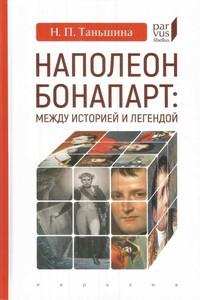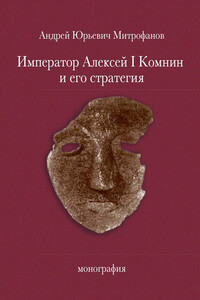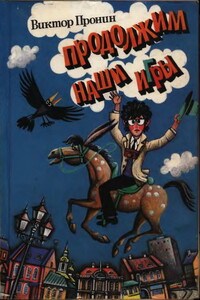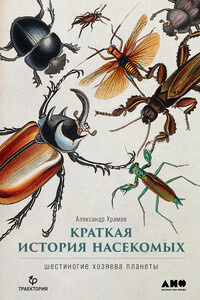Английский язык для специальных и академических целей: Международные отношения и зарубежное регионоведение. Часть 1 - [16]
British monarchs reigning for especially long periods have contributed to political stability, and shaped opinion in another respect. They have helped to conceal from their nominal subjects the full disturbing extent of change, or at least helped them to sustain it. Thus the sheer length of Queen Victoria's reign — from 1837 to 1901 — almost certainly made it easier for some British and even Irish men and women to come to terms with what was then an unparalleled rate of urban, demographic and technological change. Elizabeth II's reign, which commenced in 1952, is almost as long as Victoria's, and she too has served to conceal change by way of her own apparent changelessness. Never in history has a polity given up ruling as many diverse parts of the globe as rapidly as the United Kingdom has been obliged to do since 1952. Some of its inhabitants, however, may have found this brutal descent from global power easier to bear — and even possible to ignore — because of the present Queen's reassuringly durable reign.
There may be further changes in the future for the monarchy to strive to gloss over. As we have seen, in the past, individual monarchs often ruled over different and distinct kingdoms, and helped to forge connections between them. We may be on the verge of the revival of this system. The First Minister of Scotland, Alex Salmond, has said that if Scottish voters opt for the independence in the 2014 Referendum, he wants the House of Windsor to act as monarchs of Scotland. This would be in tandem with, but distinct from, their role as head of state of the rest of the United Kingdom.
If in the future a member of the House of Windsor does serve as a sovereign of an independent Scotland — while also maintaining his or her state in England, Wales and Northern Ireland — this will merely underline monarchy's capacity to cover over sharp political change and to create a semblance of continuity where little really exists.
1. Walter Bagehot (/'b^d^t/ 3 February 1826 — 24 March 1877) was a British journalist, businessman, and essayist, who wrote extensively about government, economics, and literature. In 1867, Bagehot wrote The English Constitution, a book that explores the nature of the constitution of the United Kingdom, specifically its Parliament and monarchy. It appeared at the same time that Parliament enacted the Reform Act of 1867, requiring Bagehot to write an extended introduction to the second edition, which appeared in 1872.
2. James VI and I (19 June 1566 — 27 March 1625) was King of Scotland as James VI from 24 July 1567 and King of England and Ireland as James I from the union of the Scottish and English crowns on 24 March 1603 until his death. The kingdoms of Scotland and England were individual sovereign states, with their own parliaments, judiciary, and laws, though both were ruled by James in personal union.
3. Victoria (Alexandrina Victoria; 24 May 1819 — 22 January 1901) was Queen of the United Kingdom of Great Britain and Ireland from 20 June 1837 until her death. From 1 May 1876, she used the additional title of Empress of India.
Victoria was the daughter of Prince Edward, Duke of Kent and Strathearn, the fourth son of King George III. Both the Duke of Kent and King George III died in 1820, and Victoria was raised under close supervision by her German-born mother Princess Victoria of Saxe-Coburg-Saalfeld. She inherited the throne at the age of 18, after her father's three elder brothers had all died, leaving no legitimate, surviving children. The United Kingdom was already an established constitutional monarchy, in which the sovereign held relatively little direct political power. Privately, Victoria attempted to influence government policy and ministerial appointments. Publicly, she became a national icon, and was identified with strict standards of personal morality.
1. ... we [Britons] retain... affection for a system which appears to be at odds with the meritocratic principles of a modern liberal democracy.
Unit I. UK: from Empire to Democracy
Unit I. UK: from Empire to Democracy
2. ... the 1950s were ... a period in which the country [UK] was anxious about how global, institutional and social change might threaten its identity.
3. ... the values and traditions which underpinned family and community life were also changing rapidly.
4. Monarchy represented a bulwark against rapid and scary change.
5. As colonial power and the riches of empire declined, there was an increasing desire to define greatness as something other than wealth and territory. Britain wanted to believe it was special.
6. The monarchy is living history, a pageant of our past that remains relevant in the present and will continue to do so in the future. Constitutionally, it is the guarantor of stability .

Наполеон притягивает и отталкивает, завораживает и вызывает неприятие, но никого не оставляет равнодушным. В 2019 году исполнилось 250 лет со дня рождения Наполеона Бонапарта, и его имя, уже при жизни превратившееся в легенду, стало не просто мифом, но национальным, точнее, интернациональным брендом, фирменным знаком. В свое время знаменитый писатель и поэт Виктор Гюго, отец которого был наполеоновским генералом, писал, что французы продолжают то показывать, то прятать Наполеона, не в силах прийти к окончательному мнению, и эти слова не потеряли своей актуальности и сегодня.

Монография доктора исторических наук Андрея Юрьевича Митрофанова рассматривает военно-политическую обстановку, сложившуюся вокруг византийской империи накануне захвата власти Алексеем Комнином в 1081 году, и исследует основные военные кампании этого императора, тактику и вооружение его армии. выводы относительно характера военно-политической стратегии Алексея Комнина автор делает, опираясь на известный памятник византийской исторической литературы – «Алексиаду» Анны Комниной, а также «Анналы» Иоанна Зонары, «Стратегикон» Катакалона Кекавмена, латинские и сельджукские исторические сочинения. В работе приводятся новые доказательства монгольского происхождения династии великих Сельджукидов и новые аргументы в пользу радикального изменения тактики варяжской гвардии в эпоху Алексея Комнина, рассматриваются процессы вестернизации византийской армии накануне Первого Крестового похода.

Виктор Пронин пишет о героях, которые решают острые нравственные проблемы. В конфликтных ситуациях им приходится делать выбор между добром и злом, отстаивать свои убеждения или изменять им — тогда человек неизбежно теряет многое.

«Любая история, в том числе история развития жизни на Земле, – это замысловатое переплетение причин и следствий. Убери что-то одно, и все остальное изменится до неузнаваемости» – с этих слов и знаменитого примера с бабочкой из рассказа Рэя Брэдбери палеоэнтомолог Александр Храмов начинает свой удивительный рассказ о шестиногих хозяевах планеты. Мы отмахиваемся от мух и комаров, сражаемся с тараканами, обходим стороной муравейники, что уж говорить о вшах! Только не будь вшей, человек остался бы волосатым, как шимпанзе.

Настоящая монография посвящена изучению системы исторического образования и исторической науки в рамках сибирского научно-образовательного комплекса второй половины 1920-х – первой половины 1950-х гг. Период сталинизма в истории нашей страны характеризуется определенной дихотомией. С одной стороны, это время диктатуры коммунистической партии во всех сферах жизни советского общества, политических репрессий и идеологических кампаний. С другой стороны, именно в эти годы были заложены базовые институциональные основы развития исторического образования, исторической науки, принципов взаимоотношения исторического сообщества с государством, которые определили это развитие на десятилетия вперед, в том числе сохранившись во многих чертах и до сегодняшнего времени.

Эксперты пророчат, что следующие 50 лет будут определяться взаимоотношениями людей и технологий. Грядущие изобретения, несомненно, изменят нашу жизнь, вопрос состоит в том, до какой степени? Чего мы ждем от новых технологий и что хотим получить с их помощью? Как они изменят сферу медиа, экономику, здравоохранение, образование и нашу повседневную жизнь в целом? Ричард Уотсон призывает задуматься о современном обществе и представить, какой мир мы хотим создать в будущем. Он доступно и интересно исследует возможное влияние технологий на все сферы нашей жизни.